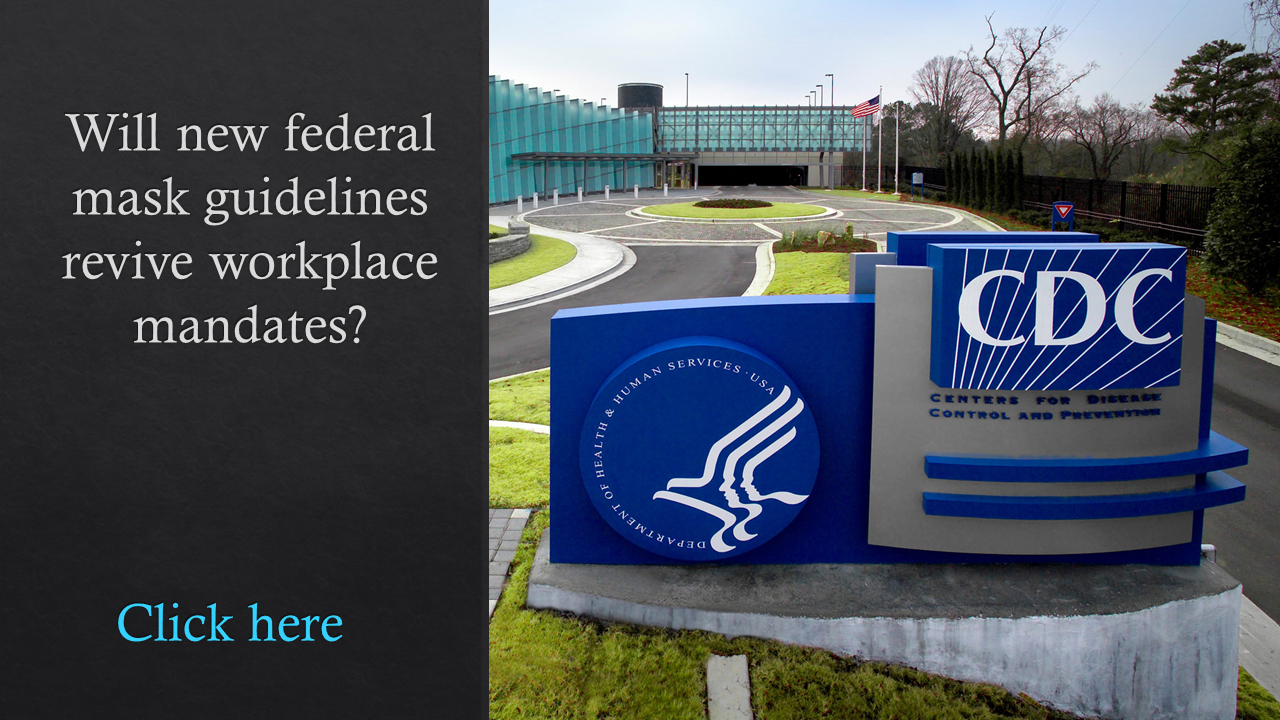Signs are increasing that more employers may mandate COVID-19 vaccination for their employees in the coming months.
In the midst of less-than-stellar vaccination rates and the growing threat of the Delta variant—which is more transmissible and potentially more deadly than the original strand—President Joe Biden on Thursday announce federal employees will be required to prove their vaccination status or face stricter safety protocols. Meanwhile, Google and Facebook both announced Wednesday that they are requiring U.S. employees to be vaccinated to return to work.
The combination is significant: Google has about 135,000 employees, Facebook has roughly 58,000, and the federal government employs some 4 million people. The moves are a significant signal that employer vaccine policies are changing as the Delta variant rapidly spreads and poses major risks for an end to the pandemic.

Richard Wahlquist
“It’s likely that many employers will follow suit,” says Richard Wahlquist, president and chief executive officer of the American Staffing Association, a trade association. “This is a complicated and contentious issue that employers, HR departments and employees will be discussing and debating in the days and weeks ahead.”
Most companies have been toying with their COVID-19 vaccine plans for several months, with many in wait-and-see mode in regard to concrete plans. Although employers received the green light to mandate inoculation from the Equal Employment Opportunity Commission, requiring vaccination hasn’t been widely embraced. Many were hesitant to do so and instead relied on encouragement, incentives and more to motivate employees to roll up their sleeves. That’s mostly due to the polarization surrounding the vaccine, as well as workplace complexities that can arise around requiring it.
Related: Want to get workers vaccinated? Try these 6 strategies
But with waning vaccination rates and other indications, it’s not a surprise that company leaders are shifting their thinking.
“There’s going to be more and more focus on the issue of what else can we do to encourage the vaccine, whether that’s more incentives or not, or should we as an employer be mandating this in order to get us all past this daily game of refresh on the websites?” says Devjani Mishra, a leader of Littler’s COVID-19 Task Force and Return-to-Work Team.
Biden’s federal employee mandate, as well as other recent employer announcements, “is going to be a huge influence” on other employers, Mishra says.
Even before this week’s announcements, mandates were picking up some steam. Morgan Stanley recently told employees they have to be vaccinated before returning to New York offices, and retailer Saks is requiring that its workers be fully vaccinated before they return to the office in the fall. And several universities across the nation—including the University of Colorado, University of Denver, California State University and Syracuse University—are requiring their employees to get vaccinated against COVID-19 before the fall.
 According to data from the Institute for Corporate Productivity, vaccine requirements, especially for employees working in company buildings, have ticked up in the past several months. The organization’s latest survey of 481 employers, conducted in June, found that 10% of organizations say they’d require vaccination of all employees. The survey also finds that 16% of employers report they will require vaccinations of employees who will be coming on site to work in organizational facilities.
According to data from the Institute for Corporate Productivity, vaccine requirements, especially for employees working in company buildings, have ticked up in the past several months. The organization’s latest survey of 481 employers, conducted in June, found that 10% of organizations say they’d require vaccination of all employees. The survey also finds that 16% of employers report they will require vaccinations of employees who will be coming on site to work in organizational facilities.
Find all our vaccine coverage here
“The rise of the Delta variant has really raised the stakes,” says Justin Holland, CEO and founder of HealthJoy, a benefits company that works with some 700 employers.
The variant also prompted the CDC this week to walk back its mask guidance. The CDC now recommends vaccinated people return to wearing masks indoors—another signal that both officials and employers may get more aggressive on ways to combat the threat, including vaccine mandates.
The CDC also says that some fully vaccinated people infected with the Delta variant, now about 90% of U.S. infections, have viral loads similar to those of unvaccinated people who get infected. This raises the specter of vaccinated people infecting others.
These higher stakes are making it difficult for employers to have unvaccinated employees, especially in the workplace, says Dr. Jeff Levin-Scherz, population health leader at consulting firm Willis Towers Watson.
 “Employers have worked hard to communicate the importance of vaccination and to make it easy for employees to get vaccinated through time off and scheduling flexibility. They can now do onsite vaccination, too,” he says. “At this point, I also think many employers will start to make it difficult for employees not to be vaccinated—either by mandates or by frequent testing requirements for the unvaccinated.”
“Employers have worked hard to communicate the importance of vaccination and to make it easy for employees to get vaccinated through time off and scheduling flexibility. They can now do onsite vaccination, too,” he says. “At this point, I also think many employers will start to make it difficult for employees not to be vaccinated—either by mandates or by frequent testing requirements for the unvaccinated.”
Devjani agrees that frequent testing may be the alternative to required vaccination.
Rob Wilson, human resources expert and President of Employco USA, a nationwide employment solutions firm, though, notes many small businesses have returned employees to the workplace without vaccine mandates—and many large corporations have done the same. As long as these organizations are doing their due diligence on safety measures and helping keep employees healthy, Wilson doesn’t think employers will need to rethink their vaccination plans.
“If the government thinks it should be mandated, then they should be the ones to mandate,” he says.